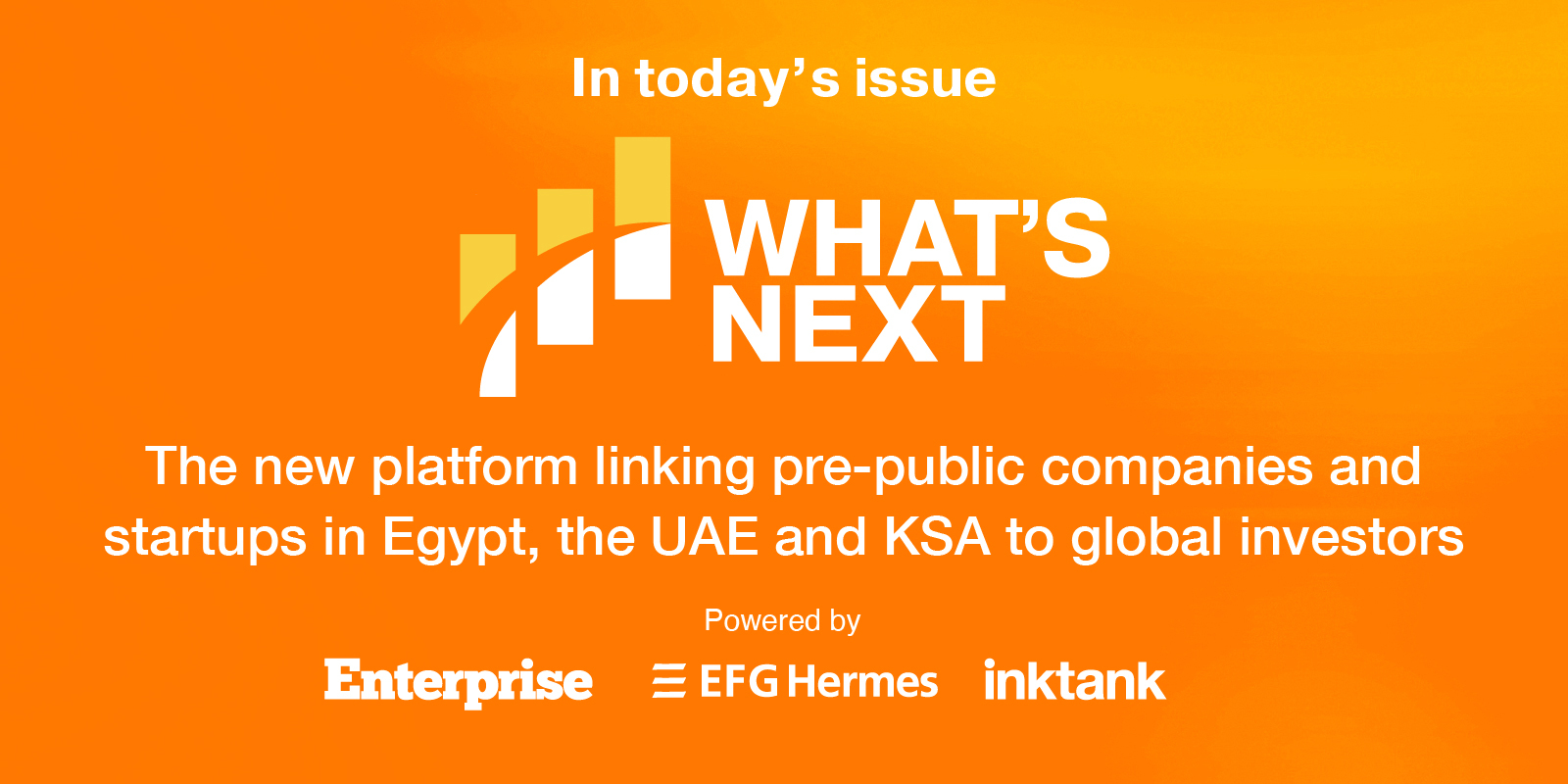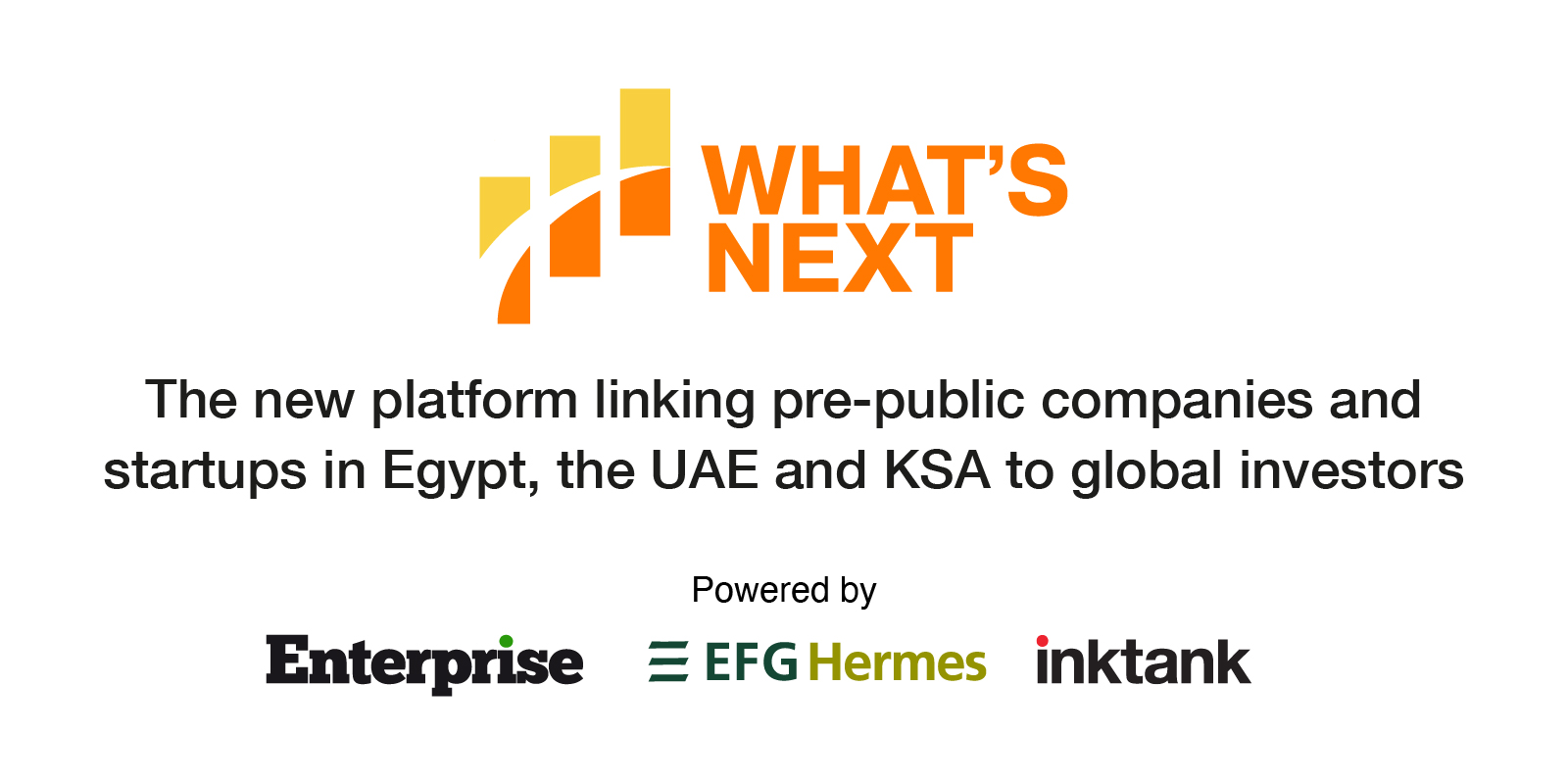- Annual urban inflation hit 7.3% in January, its highest in almost 2.5 years. (Economy)
- Macro Group eyes a cosmeceuticals acquisition following EGX debut. (IPO Watch)
- Dealmaking boomed at home and across the region last year — and it’s set to continue. (M&A Watch)
- Gov’t seeks guarantees from Japan’s development agency to bolster planned Samurai bonds. (Debt Watch)
- Cabinet greenlights public-sector minimum wage hike + teacher hiring push. (Cabinet Watch
- The private sector overtook the state on wheat imports in 2021. (Commodities)
- Proptech startup Nawy scores bridge funding round. (Startup Watch)
- Etisalat Misr buys 40 MHz of new bandwidth from the telecoms regulator. (Telecoms)
- We could see a piece of EUR 20 bn in fresh European investment to Africa + EBRD’s new Egypt strategy approved. (Also On Our Radar)
- The status of superapps in Egypt — Part 3: the investment case. (What’s Next)
- Stocks slide and oil gains on Ukraine conflict worries. (Planet Finance)

Sunday, 13 February 2022
AM — Annual urban inflation rises to near 2.5-year-high in January
TL;DR
WHAT WE’RE TRACKING TODAY
Good morning, wonderful people. We’ve got a torrent of business news for you this morning, from investment to M&A by way of superapps and our highest inflation reading in nearly three years. But what’s preoccupying our thoughts? Ukraine.
THE QUESTION OF THE WEEK- Are we looking at what could be the most significant land war in Europe since the Second World War? “Swift and severe costs” is the quote splashed across the front pages of the international press this morning. That’s what US President Joe Biden yesterday promised Russian President Vladimir Putin would be in store for him and his country if Ukraine is invaded. The threat – and whatever else was said on the hour-long call — failed to deliver a breakthrough: US officials continue to brief of an imminent Russian attack on Ukraine, which Russia continues to characterize as absurd. Meanwhile, Germany and a handful of other countries have followed the US’ lead by advising their citizens in Ukraine that it's time to get out of Dodge.
Embassies are moving personnel out of Kyiv and more than 30 Russian ships have set sail in the Black Sea for what Moscow says are exercises. Everyone has more on the story, from the New York Times, the Washington Post and the Wall Street Journal to Reuters, Bloomberg and the Financial Times.
Why are we leading with this? We have a lot at stake here. Russia and Ukraine are key tourism markets for Egypt — and two of our most important suppliers of wheat. And that’s to say nothing of the fact that global markets tend not to like shooting wars…
HAPPENING TODAY-
The Senate is set to finish its discussion of the draft Labor Act during plenary sessions today and tomorrow, according to Ahram Online. The Senate has already approved several articles in the new act, which is set to be passed onto the House of Representatives for final approval. The law would, if enacted, extend both maternity leave and notice periods, cap working hours, and change minimum raise increments, among other things. We have an explainer on the bill’s finer points here.
ALSO- The draft ins. Act is up for debate at the Senate’s Financial Affairs Committee today and tomorrow, Ahram Online reports. The bill would make the Financial Regulatory Authority the primary regulator for the ins. sector and make ins. compulsory for SMEs and freelancers.
PSA- Companies that are required to sign up to the sixth phase of the rollout of the government’s electronic invoicing platform must do so by Tuesday, Amwal Al Ghad reports. Over 31k companies had signed up by January to the tax authority’s e-invoicing system for B2B transactions, Egyptian eInvoicing.
The government will unveil its green stimulus package before the end of the fiscal year in June, Finance Minister Mohamed Maait said Friday. The policy, which was initially slated to be announced in March, will provide targeted financial incentives to encourage sustainable and carbon emission-reducing projects. The government is also readying a package of measures to incentivize companies to help localize the electric vehicle industry, which will be announced “in the coming period.”
|
CORRECTION- In our story on Thursday on amendments to the Income Tax Act, we incorrectly said that the amendments would see property owners pay a lump sum tax ranging from EGP 1.5k-4k when they sell their real estate assets, replacing the current 2.5% tax paid by sellers on properties’ disposition or quick sale value. The amendments would, if passed, only apply the lump sum amount to properties that were sold before 19 May, 2013 — when the law was originally issued. Any sales after that date would still be subject to the same 2.5% tax. The story has been corrected on our website.
CIRCLE YOUR CALENDAR-
The Arab Sustainable Development Week will kick off today and run through to Tuesday at the Arab League headquarters and the Nile Ritz Carlton.
The three-day Egypt Petroleum Show (EGYPS) begins at the Egypt International Exhibition Center tomorrow, and runs until Wednesday.
An art exhibition featuring work from marginalized children will be held at Townhouse Gallery from today until Saturday. The event is organized by the Sawiris Foundation for Social Development, AlexBank, Townhouse Gallery, Al Ismaelia for Real Estate Investment, and Ubuntu Art Gallery..
Check out our full calendar on the web for a comprehensive listing of upcoming news events, national holidays and news triggers.
*** It’s What’s Next day: We have our weekly deep-dive into what makes and shapes pre-listed companies and startups in Egypt, the UAE and KSA, touching on investment trends, future sector insights and growth journeys.
In today’s issue: In the first two parts of our series on superapps, we looked at why Egypt and the MENA region are ideal locations for these apps to thrive, and what challenges superapps face. In Part III, we look at how superapps overcome these challenges — and why, despite the risks, super apps are still worth the investment.
ECONOMY
Annual urban inflation highest in almost 2.5 years in January

Annual urban inflation hit its highest level in almost two and a half years in January due to rising food prices and an unfavorable base effect, according to figures released Thursday by statistics agency Capmas. Urban inflation rose to 7.3% last month from 5.9% in December, recording its highest rate since August 2019. On a monthly basis, consumer prices went up by 0.9%.
Food prices were the main drivers: Food and beverage costs (which make up the largest component of the basket of goods used to measure prices) rose at their quickest pace in 32 months, fueling the increase in the headline rate. Prices were up 12.4% y-o-y, up from 8.4% in December, mainly due to rising oil, vegetable and meat prices.
Annual core inflation continued to accelerate, hitting 6.3% from 6% in December, according to the CBE (pdf) — its fastest expansion since June 2019. Core inflation removes volatile items such as food and fuel.
The rising figure came in line with most analysts’ expectations: January’s reading came in line with EFG Hermes’ prediction of 7.2%, according to a note to clients by chief economist Mohamed Abu Basha. CI Capital’s had penciled in 7.34% y-o-y, according to an emailed note. Al Ahly Pharos’ Israa Ahmed said in a note the surge in inflation was expected due to “seasonal factors.” Beltone Financial, however, had penciled in lower inflation of 6.4% in January, according to an emailed note.
Inflation remains within the central bank’s target range: Despite reaching its highest level in two and a half years, the annual rate remains within the Central Bank of Egypt (CBE)’s target range of 7% (±2%) by 4Q2022.
Also notable: Housing and utility prices rose by 4.7% y-o-y, driven by higher energy costs, while transport costs rose 4.9%. Clothing and footwear prices rose 3.4% y-o-y.
Higher inflation is coming, say the experts: “We expect the annual inflation to slightly increase to around mid-7%, and the whole quarter to record pretty much the same level, unless there are any positive surprises for vegetables or meat prices,” Ahmed said. CI Capital, meanwhile, sees 1Q2022 inflation rates averaging 7.7%, while Beltone Financial expects headline inflation to “continue gaining momentum” due to the base effect and rising commodity prices.
There’s no consensus on what this means for interest rates: HC Securities is penciling in 100-150 bps of rate hikes this year and CI Capital is projecting stable rates “in the short-term,” but Al Ahly Pharos doesn’t see any changes on the horizon, predicting the central bank will leave rates unchanged for “as long as possible.”
IPO WATCH
Macro marks EGX debut, says it’s eyeing an acquisition this year
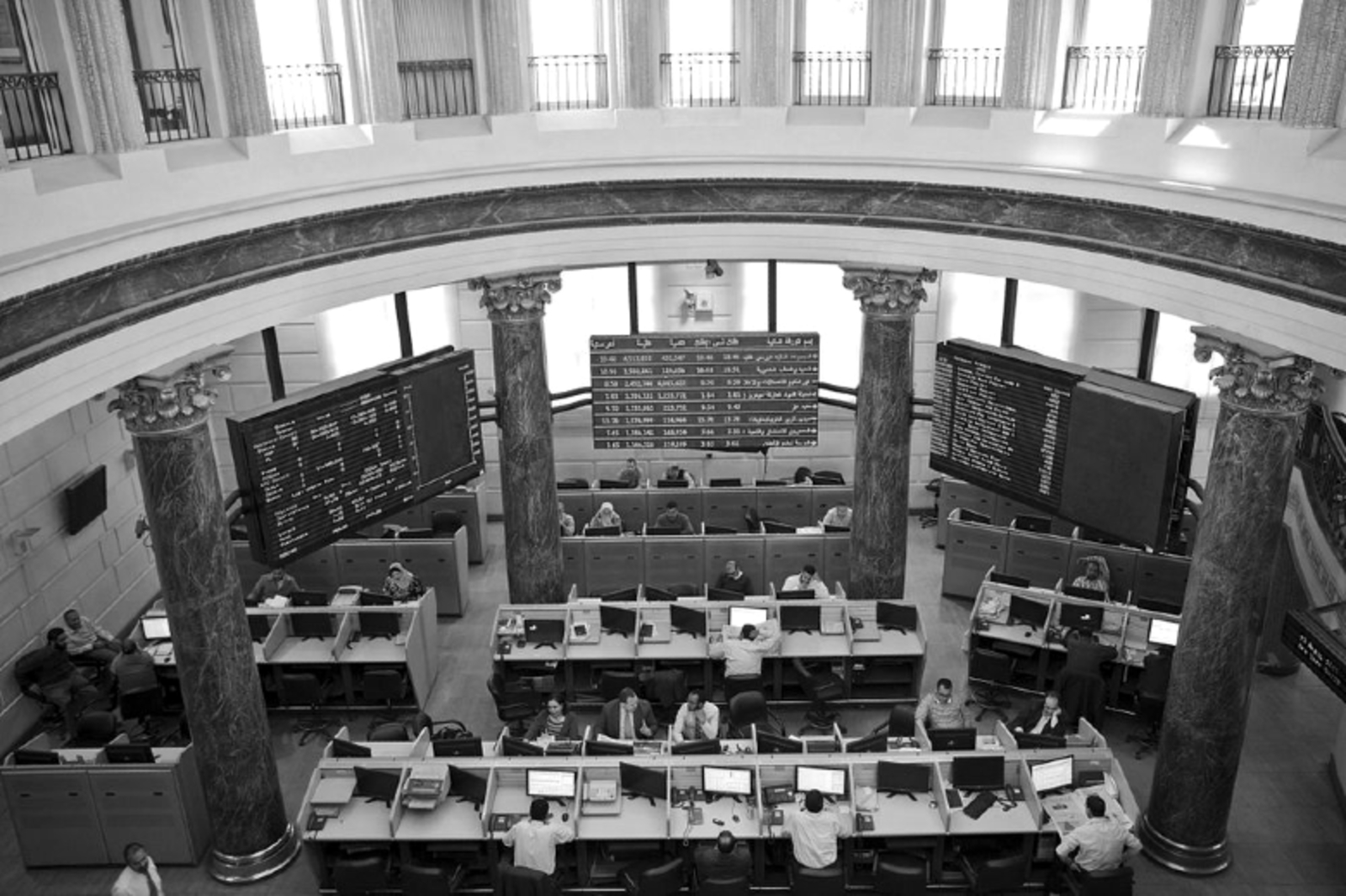
Leading cosmeceutical outfit Macro Group is doing due diligence on an acquisition with an eye to completing the transaction this year, Al Borsa quotes CEO Hisham Wasfy as saying at a press conference on Thursday after the company made its EGP 1.3 bn EGX debut. The company had acquired a nutritional supplement company in 4Q2021, Wasfy also said, without disclosing the name or value of the acquisition.
The IPO: Macro’s IPO saw it sell 264.5 mn shares (equivalent to a 45.8% stake) at EGP 4.85 apiece, valuing the company at around EGP 2.8 bn. Shareholder Leo 1 — a special purpose vehicle that held 99.9% of Macro — sold the shares in a secondary sale, according to a statement (pdf) from EFG Hermes, which quarterbacked the transaction. Shares in the cosmeceuticals firm rose as much as 15% on Thursday before falling back to close at EGP 4.51, below their EGP 4.85 opening price.
Strong investor interest: The IPO saw around 5.6k investors participating in the retail and institutional offerings, according to an EGX statement (pdf), around half of whom were new investors. The institutional offering — which was allocated 95% of the shares — was 1.8x oversubscribed, while the retail component saw stronger demand, closing 102x oversubscribed.
IPO momentum picking up? Macro’s debut on the bourse marks our second IPO of the year, after Al Khair River for Development and Investment (aka Nahr El Khair) got the ball rolling last month. Macro’s IPO comes as the government is gearing up to revive the state privatization program this year, with Prime Minister Moustafa Madbouly, Planning Minister Hala El Said, and Finance Minister Mohamed Maait all signaling over the past couple of weeks that we should expect to see several state listings this year. Maait pledged last month to restart the privatization program in March, a few days after El Said said that the government could sell stakes every month or two.
Advisors: Our friends at EFG Hermes quarterbacked the transaction as sole global coordinator. EFG Hermes and Renaissance Capital acted as joint bookrunners, while White & Case was counsel to the issuer. Dechert and Zaki Hashem & Partners were counsel to the joint bookrunners, while PwC was appointed external auditor. Inktank was investor relations advisor.
M&A WATCH
2021 was big for M&A — and tech, education and healthcare should drive activity this year

M&A in Egypt continued to accelerate in 2H2021 as waning pandemic uncertainties and cheap international borrowing rates fuelled a rebound in transaction volumes following the covid shock in 2020, according to a report by Baker McKenzie (pdf) based on Refinitiv data.
The outlook? More of the same, according to Mohamed Ghannam, managing partner at Helmy, Hamza & Partners, Baker McKenzie Cairo Managing, who said large transactions in tech, education, healthcare, oil and gas, and telecoms lead the firm to expect a strong year ahead for M&A. Both domestic and international companies are driving activity.
For the full year in 2021: Companies closed 233 transactions in 2021 (+49% year-on-year) while total transaction value rose 486% to USD 9.9 bn.
The number of transactions rose in the second half: Egypt saw 116 M&A transactions during 2H2021, up from 111 in the first half of the year and up 38% from the same period last year.
As did the value of transactions: Transactions worth USD 4.3 bn closed in the second half of the year, up a bit from USD 4 bn during 1H2021 — and more than 5x higher than the equivalent period in 2020
The second half of 2021 saw the completion of some of the biggest acquisitions of the year, with the Aldar Properties-ADQ consortium finalizing their USD 338.2 mn takeover of leading real estate developer SODIC, and EFG Hermes and the Sovereign Fund of Egypt closing their acquisition of a combined 76% stake in the Arab Investment Bank for USD 241.9 mn.
Cross-border transactions accounted for the bulk of Egypt’s M&A during the period, with domestic acquisitions making up less than 20% of the total value. Most cross-border M&As were inbound, helping to make Egypt the second most popular target country in the world after the US, according to Refinitiv. “This interesting finding further supports the economic growth that the country has been witnessing since the beginning of 2021 and post-pandemic uncertainties in various fields and industries,” said Hani Nassef, M&A partner at Helmy, Hamza & Partners, Baker McKenzie.
The healthcare field was the top-target for inbound investors in terms of transaction value, with a total of USD 1.6 bn for the whole year.
Global M&A had its biggest year on record in 2021: Transactions worth USD 5.9 tn were completed in 2021, which is the biggest year for global M&A since records began in 1980.
And the Middle East region wasn’t bad, either, seeing some USD 49.5 bn worth of transactions during 2H2021 and USD 89.8 bn during the year, up 58% from 2020.
In other M&A news-
Abu Dhabi-based International Holding Co (IHC) is searching for acquisition targets in Egypt, CEO Syed Basar Shueb told Reuters in an interview, without providing further information.
IHC’s Egypt footprint: The Emirati conglomerate owns or has stakes in at least three companies in Egypt, according to data available on its website. Alongside Al Hashemiya for Land Reclamation and Cultivation, which it acquired in April 2020, it also owns 33% of Canal Sugar and in 3Q2021 acquired 49% of the Challenge Egyptian Emirates Marine Dredging Company, a joint venture with the Suez Canal Authority.
IHC could IPO its healthcare business Pure Health in 2Q2022 or early in 3Q after its merger with Abu Dhabi Health Services has been completed, Shueb added. Our friends at Abu Dhabi-based investment firm Chimera Capital is advising on the potential listing, which would see 25-30% of the company’s shares offered to the public, he said. The article doesn’t specify where the company would be listed.
DEBT WATCH
Egypt seeks guarantees for potential Samurai bonds

The Madbouly government wants our first Samurai bond issuance to be fully guaranteed by the Japan International Cooperation Agency (JICA) to ensure strong investor participation, Al Arabiya reported on Thursday, citing sources it says has knowledge of the matter. Officials are currently discussing the matter with the agency, which has “shown flexibility,” according to the sources, who added that no final agreement had yet been reached.
Egypt aims to sell around USD 500 mn of JPY-denominated bonds in Japan by the end of June as part of its debt diversification strategy, Finance Minister Mohamed Maait said last month. “The bond issuance will be in JPY, but the transfer currency can be in JPY or USD,” Maait said.
Asian investors expect to see an Asian rating agency in play? Officials are in talks with Japanese government financial institutions over to concerns that investors may hesitate to put money in Egyptian bonds over credit ratings, the unidentified sources reportedly told Al Arabiya. While Egypt’s sovereign credit rating generally has a stable outlook from the top three rating agencies (S&P Global, Moody’s, and Fitch), Asian markets do not usually rely on them to assess bonds. Marketing foreign bonds in Asia is a different ball game and requires new ratings assessments by Asian agencies.
Background: The government had been mulling selling JPY-denominated bonds back in 2019, but Maait said in late 2020 that the planned sales were being pushed until at least FY2021-2022 because of complications caused by the pandemic. Samurai bonds are issued in Tokyo by non-Japanese companies to access Japan’s financial market.
CABINET WATCH
Cabinet approves minimum wage increase + startup power for our first green hydrogen plant
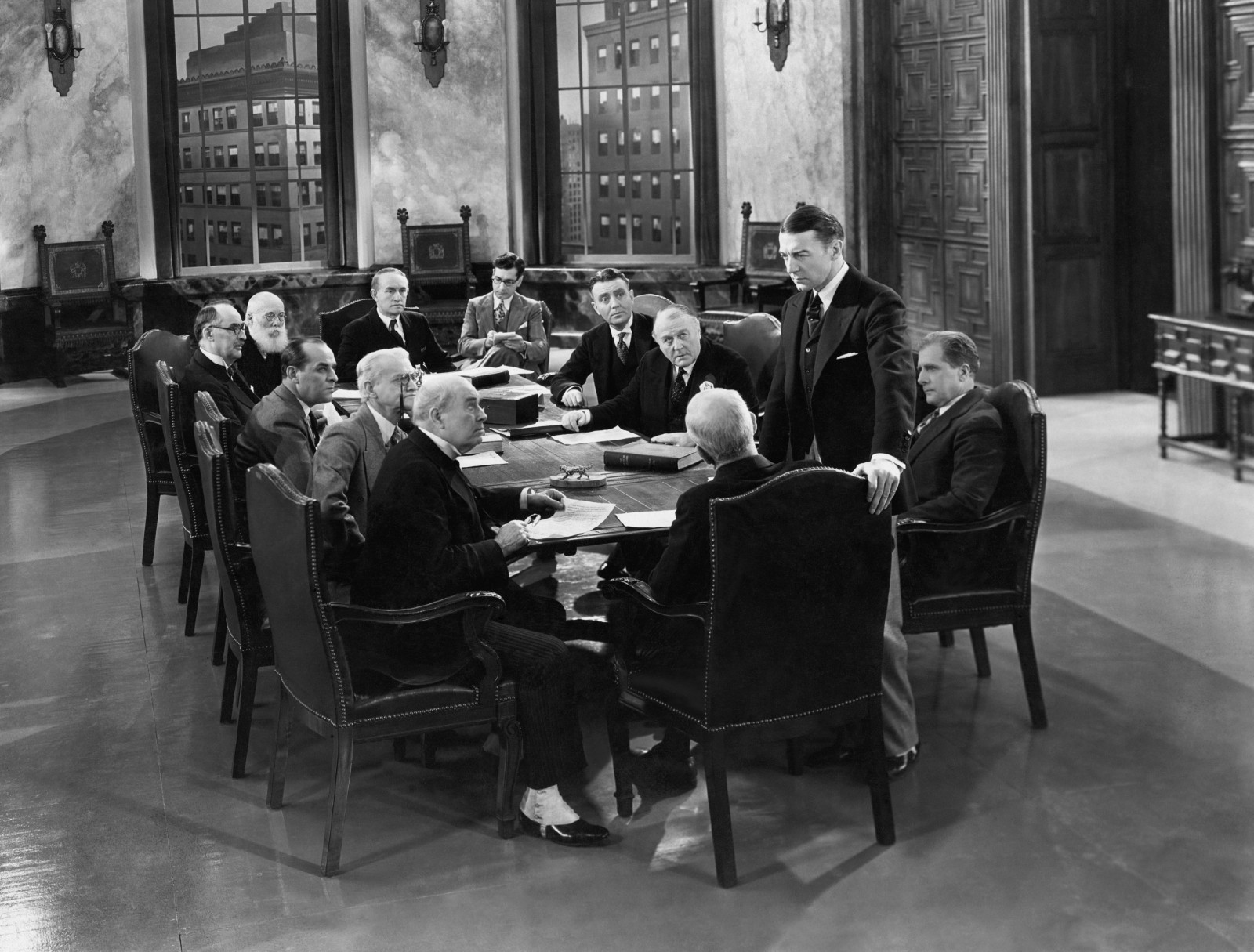
Cabinet greenlights minimum wage hike to EGP 2.7k: Cabinet approved a decision to increase the monthly minimum wage for state employees across all salary bands by EGP 300, bringing the public-sector overall minimum wage to EGP 2.7k, according to a cabinet statement. Ministers approved the wage hike — the second in two years for the public sector — as part of a basket of measures announced in January to give incentives to public workers, including extending annual 7% bonuses first brought in last year, and hikes to pensions.
Teacher hiring campaign approved: Cabinet also approved spending EGP 1.8 bn to hire 30k new teachers in the coming 2022-2023 fiscal year, as part of a five-year plan to hire 150k teachers in total. Another EGP 1.8 bn was earmarked to hire 30k doctors and nurses.
Lending electricity to our first green hydrogen plant? Cabinet will study the possibility of providing the country’s first green hydrogen plant with electricity to help get it up and running, on the condition that the plant returns an equivalent amount of electricity once it starts operating, according to a statement. The 100 MW Ain Sokhna facility is being built by a consortium of Orascom Construction, Norway’s Scatec, Nassif Sawiris-backed Fertiglobe, and the Sovereign Fund of Egypt. It is expected to come online in 2024. The companies requested the electricity — which the statement said would come from renewable sources connected to the national grid — to help expedite construction with the aim of getting the plant up and running by the COP27 summit in November, the statement read.
No subsidies for those who build illegally on public land: Authorities will revoke bread and other food subsidies to those found guilty of illegally building on agricultural land, PM Mostafa Madbouly said during the cabinet’s latest meeting. The move comes as the government continues to crack down on illegal building on arable land, at least 90k feddans of which have been lost in the last decade due to encroachment alone.
COMMODITIES
Private sector eclipses GASC as Egypt’s leading wheat importer

The private sector was Egypt’s leading wheat importer last year: Private sector wheat imports surpassed purchases by the state-run General Authority for Supply Commodities (GASC) in 2021 — and could continue to lead Egypt’s wheat imports, Reuters reports, citing industry experts.
In numbers: The private sector imported 6.9 mn tonnes of wheat last year, an 11% y-o-y rise and almost 50% more than GASC, whose imports fell 32% y-o-y to 4.7 mn tonnes, Reuters reports, citing data from the UN’s Food and Agriculture Organization (FAO) and two regional traders. GASC accounted for some 51% of wheat imports in 2020, with around 30 private sector companies importing the remainder.
Subsidy reform could mean that 2021 isn’t an anomaly: “If GASC wheat purchases decline in the next years as expected due to potential reforms in the subsidy system, a sector of the consumers of the subsidized bread will turn to the free market bread,” FAO Representative in Egypt Nasredin HagElamin told Reuters. The Supply Ministry is working on several scenarios that would see the government taper bread subsidies as rising international prices pressure the state budget, with a final decision expected at the end of March.
Spiraling global wheat prices are squeezing the state purse: The rise in global wheat prices will cost us an additional EGP 12 bn this fiscal year, Finance Minister Mohamed Maait said last month. GASC had been allocated some EGP 87 bn in this fiscal year’s state budget. As the world’s biggest importer of wheat, we’re significantly exposed to price hikes that saw the grain trade in 2021 at its highest levels in more than a decade amid the global commodities squeeze. Prices have continued to rise this year on fears that major producers Russia and Ukraine could go to war.
STARTUP WATCH
Proptech startup Nawy secures fresh seed investment
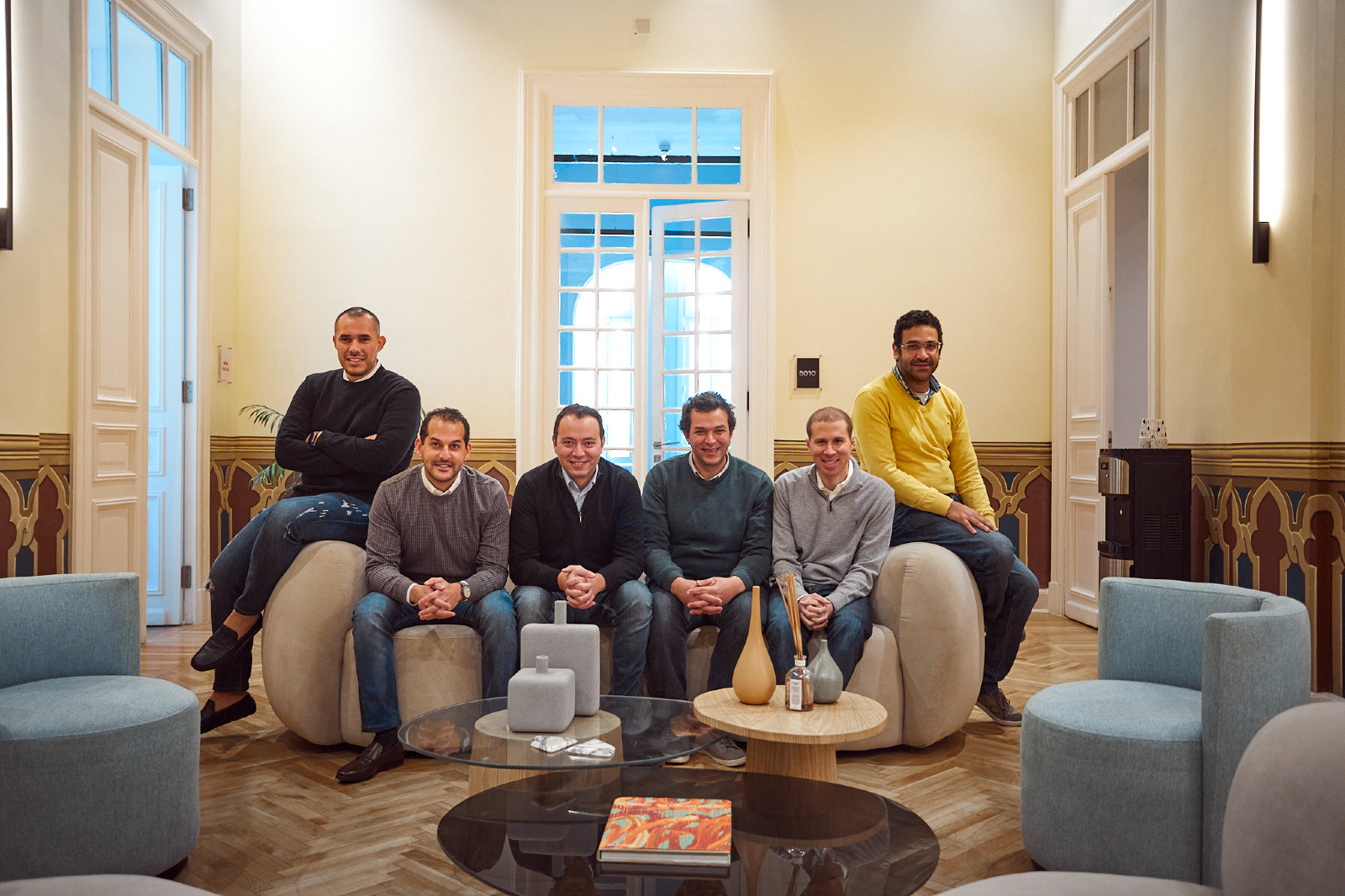
Proptech startup Nawy has raised an undisclosed investment in a bridge funding round led by the Sawiris family office, Nawy co-founder and chief business development officer Ahmed Rafea told Enterprise. The latest investment means the company has now raised USD 5 mn to date after closing an undisclosed seed round last year, also led by the Sawiris family office with participation from angel investors including Etisalat Group CEO Hatem Dowidar.
About the company: Nawy is a real estate search engine that also offers property financing via its brokerage arm. Since launching in 2016, the firm has helped more than 60k people find homes and more than USD 200 mn worth of properties have been sold via its website, according to a company statement (pdf). Nawy saw its revenues grow 5.4x during 2021, Rafea told us.
The money will go towards new staff + new services: The company will use the funding to launch new marketing campaigns, add to its 200-strong headcount to expand its tech and products teams, and explore adding new services to its platform. “We are studying the long- and short-term rentals market as well as property management services,” Rafea said. “We want to facilitate and refresh the secondary market which is very slow compared to new properties.”
It’s also looking outside of Egypt: The company is planning to expand to several markets outside of Egypt. “We’re thinking of the UAE and Saudi Arabia. We’re also considering South Africa. We haven’t taken a decision yet, but these are the countries that we’re planning to open in,” Rafea said.
TELECOMS
Etisalat Misr buys 40 MHz of bandwidth + new subsea data cable to connect Egypt + Greece

Etisalat Misr bought 40 MHz of new bandwidth from the National Telecommunications Regulatory Authority (NTRA), Etisalat Misr ِActing Chief Corporate Affairs Officer Hossam ElMeadawy said in a statement (pdf) on Thursday, without providing the value of the transaction.
Two awards in one week: This came in the same week that Orange Egypt announced that it had purchased 30 MHz of bandwidth for USD 440 mn.
Etisalat Misr last acquired spectrum in 2020 when it purchased two 10 MHz bands for USD 325 mn as part of a government tender that also saw Vodafone Egypt and Telecom Egypt acquire 60 MHz between them.
Etisalat’s spending plans: The UAE-based firm will spend EGP 5-5.5 bn to upgrade its services this year, Metwally said.
Background: Mobile network operators have repeatedly asked the NTRA to provide access to new bandwidth since 2017 when the regulator first launched 4G in the country.
IN OTHER TELECOMS NEWS-
New subsea data cable between Egypt and Greece: Telecom Egypt and Greek operator Grid Telecom have signed an agreement to lay a new subsea data cable between the two countries, the Madbouly cabinet and the Greek Digital Governance Ministry said in separate statements Thursday.
The cable comes to advance our plans to become a data hub between Asia, Europe, and Africa. Some 13 cables currently transmit data from Egypt to Europe, while Telecom Egypt plans to add six more cables over three years, along with completing the Hybrid African Ring Path (Harp) by 2023, the statement says. Harp connects landlocked and coastal African countries to Europe through a giant subsea system that will circle all of Africa. Construction is also underway on a telecoms cable linking Malta to Egypt, part of the the 15k-km long Pakistan, East Africa and Europe for Connecting International Networks (PEACE) internet cable that is planned to run from France to Asia and down the east coast of Africa via Egypt.
MOVES
LAST NIGHT’S TALK SHOWS
It was a mixed bag on the airwaves last night, with a little bit of everything from diplomacy to the latest legislative decisions — and even some business news. Cabinet Spokesperson Nader Saad spoke with Kelma Akhira’s Lamees El Hadidi (watch, runtime: 23:32) on plans to revoke subsidies from those who illegally build on agricultural land, where he also said a bill would be introduced to ban them from taking on positions as civil servants. Meanwhile, Education Minister Tarek Shawki phoned into Ahmed Moussa’s Sada El Balad (watch, runtime: 11:15) to defend proposed amendments to the Education Act that were struck down last week by the House of Representatives. Shawki said the plans to fine parents of truant children had been aimed at addressing the issue of students dropping out of school entirely, not those who miss classes or sessions.
FAB’s play for EFG Hermes also featured: First Abu Dhabi Bank’s (FAB) offer to buy a majority stake in leading financial services corporation EFG Hermes in an acquisition that would value the company at EGP 18.5 bn got some airtime from Kelma Akhira (watch, runtime: 15:07), with veteran economist Hany Tawfik and CI Capital’s Monsef Morsy phoning in to offer their takes.
ALSO ON OUR RADAR
EU drafts EUR 20 bn investment plan in Africa — and some of it could head our way: The European Union (EU) is drafting a EUR 20 bn financing package to support African infrastructure projects in a bid to rival China’s reach in the continent, Bloomberg reports. The plan includes “investments in strategic corridors, international submarine cables, new energy interconnections and investments in renewable sources” in Egypt, Senegal, Cote d’Ivoire, Morocco and Kenya, according to a draft seen by Bloomberg. Most of the funds are directed towards the Global Gateway, Europe’s answer to China’s Belt and Road infrastructure initiative. This comes as the bloc looks to strengthen ties with the continent at the European Union-African Union summit happening later this week.
In other funding news from Europe: The EBRD has signed off on its new Egypt country strategy. The European Bank for Reconstruction and Development’s (EBRD) board last week approved its 2022-2027 Egypt country strategy, International Cooperation Minister Rania Al Mashat said in a statement. The five-year strategy is set to see the EBRD provide support for Egypt’s economic growth, our shift toward a green economy, and increased private sector participation. No details have yet been announced on the type and value of EBRD activity in Egypt under the strategy.
EBRD is a top foreign investor in Egypt, having deployed more than EUR 8.7 billion in 145 projects (76% in the private sector) since it started operating here a decade ago.
COVID WATCH
Daily covid cases continue to fall, officials say decline to accelerate in coming weeks
The Health Ministry reported 2,145 new covid-19 infections yesterday, down from 2,179 the day before, as the daily tally continued to fall from a peak of 2,301 at the start of last week. Egypt has now disclosed a total of 452,821 confirmed cases of covid-19. The ministry also reported 59 new deaths, bringing the country’s total death toll to 23,292.
Has omicron hit its peak? The next three weeks could see daily covid-19 infections fall significantly as winter recedes, if we remain committed to expanding the vaccination program and stick to other precautionary measures, Health Minister Khaled Abdel Ghaffar told El Hekaya (watch, runtime: 14:36) last night.
The vaccine tally: 28,992,529 people are now fully vaccinated against the virus, while some 9.5 mn people have received only their first shots and 732,330 people have received booster shots. Some 48% of the population is now fully vaccinated, while 63% have received at least a first shot, Abdel Ghaffar added.
PLANET FINANCE
Stocks plunge, oil prices rally over Ukraine invasion concerns: Stocks ended last week in the red, while oil prices soared on the back of fears of escalation in the Ukraine-Russia conflict. Brent crude futures settled at USD 94.44 a barrel on Friday as the threat of war in Ukraine pressured already tight global crude supplies, according to Reuters. Meanwhile, the S&P500 fell 1.9% and the tech-heavy Nasdaq dropped 2.8%, as geopolitical tensions exacerbated concerns that the US Federal Reserve could hike rates aggressively next month in light of decades-high inflation in the US.
|
|
EGX30 |
11,579 |
-0.2% (YTD: -3.1%) |
|
|
USD (CBE) |
Buy 15.66 |
Sell 15.76 |
|
|
USD at CIB |
Buy 15.66 |
Sell 15.76 |
|
|
Interest rates CBE |
8.25% deposit |
9.25% lending |
|
|
Tadawul |
12,269 |
+0.5% (YTD: +8.8%) |
|
|
ADX |
8,998 |
+0.8% (YTD: +6.0%) |
|
|
DFM |
3,257 |
+0.2% (YTD: +1.9%) |
|
|
S&P 500 |
4,419 |
-1.9% (YTD: -7.3%) |
|
|
FTSE 100 |
7,661 |
-0.2% (YTD: +3.7%) |
|
|
Brent crude |
USD 94.44 |
+3.3% |
|
|
Natural gas (Nymex) |
USD 3.94 |
-0.5% |
|
|
Gold |
USD 1,842 |
+0.3% |
|
|
BTC |
USD 41,965 |
-1.3% (as of midnight) |
THE CLOSING BELL-
The EGX30 fell 0.2% at Thursday’s close on turnover of EGP 292.4 mn (72.3% below the 90-day average). Foreign investors were net sellers. The index is down 3.1% YTD.
In the green: EFG Hermes (+2.9%), ADIB (+2.9%) and Abu Qir Fertilizers (+2.15%).
In the red: ElSewedy Electric (-5.6%), Medinet Nasr Housing (-5.2%) and Rameda (-4.9%).
DIPLOMACY
El Sisi, Baerbock talk increasing investments + COP27: President Abdel Fattah El Sisi discussed increasing Germany’s private sector investment to Egypt and COP27 preparations in a meeting with German Foreign Minister Annalena Baerbock, according to an Ittihadiya statement. Baerbock concluded her first visit to Egypt yesterday, which also saw her meet with Foreign Minister Sameh Shoukry, ending a Middle East tour that took in Israel, Palestine, and Jordan.
Human rights criteria will be at the center of Germany’s new government’s international arms sales this year, including to Egypt, Baerbock said at a joint press conference following talks with Shoukry, according to the Associated Press and Deutsche Welle. Former chancellor Angela Merkel’s government approved a number of arms sales to Egypt before leaving office in December, drawing fire from critics.
ALSO IN DIPLOMACY-
El Sisi discusses strategic ties with Macron: Sisi discussed strengthening cooperation with French President Emmanuel Macron during a trip to France over the weekend for the One Ocean Summit, which aims to push the international community to take action towards preserving the planet’s oceans. The pair touched on events in Libya and November’s COP27 summit in Sharm El Sheikh. El Sisi also met with European Commission President Ursula von der Leyen, Tunisian Prime Minister Najla Bouden and Norwegian Prime Minister Jonas Gahr Støre at the French summit, where he delivered a speech.
CALENDAR
1Q2022: Launch of the Egyptian Commodities Exchange.
1Q2022: Swvl acquisition of Viapool expected to close.
1Q2022: Waste collection startup Bekia plans to expand to the UAE and Saudi Arabia.
1Q2022: Rameda Pharma will begin selling its generic version of Merck’s oral antiviral covid-19 med.
1Q2022: Pharos Energy’s sale of a 55% stake in El Fayum, Beni Suef concessions to IPR Energy Group subsidiary IPR Lake Qarun expected to close.
Early 2022: Results to be announced for the second round of the state’s gold and precious metals auction.
1H2022: Target date for IDH to close its acquisition of 50% of Islamabad Diagnostic Center.
1H2022: e-Finance’s digital healthcare service platform, eHealth, will launch its services.
1H2022: The government will respond to private companies’ bids to build desalination plants.
1H2022: Egypt’s second corporate green bond issuance expected to be announced.
1H2022: The Transport Ministry to sign a memorandum of understanding with Abu Dhabi Ports to set up a transport route across the Nile to transport products from Al Canal’s Minya sugar factory.
January-February 2022: Construction work on the Abu Qir metro upgrade will begin.
February: Hassan Allam Construction’s new construction firm established with Russia’s Titan-2 to handle construction work on the Dabaa nuclear power plant begins its operations.
February: Ghazl El Mahalla shares will begin trading on the EGX.
Mid-February: End of grace period to comply with new minimum wage for firms who sent in exemption requests.
Mid-February: A Hungarian delegation will arrive in Egypt for talks over a potential investment in an industrial area in the SCZone.
4-20 February (Friday-Sunday): 2022 Winter Olympics, Beijing.
11-12 February (Friday-Saturday): German Foreign Minister Annalena Baerbock will be in Cairo for a two-day visit.
11-13 February (Friday-Sunday): FIBA Intercontinental Cup, Cairo.
13-15 February (Sunday-Tuesday): Arab Sustainable Development Week. Arab League headquarters, Nile Ritz Carlton.
14-16 February (Monday-Wednesday): Egypt Petroleum Show, Egypt International Exhibition Center, New Cairo, Egypt.
14-19 February (Monday- Saturday): An art exhibition created by marginalized children will be held at Townhouse Gallery. The event is organized by the Sawiris Foundation for Social Development, AlexBank, Townhouse Gallery, Al Ismaelia for Real Estate Investment, and Ubuntu Art Gallery.
15 February (Tuesday): The Industrial Development Authority’s deadline for receiving offers from companies for licenses to manufacture steel products.
15 February (Tuesday): Orange Ventures’ deadline to receive applications from seed-stage fintech startups.
19 February (Saturday): Public universities begin the second term of the 2021-2022 academic year.
19-21 February (Saturday-Monday): Nebu Expo for Gold and Jewelry 2022.
21 February (Monday): Hearing at Cairo Economic Court (pdf) on FRA lawsuits filed against Speed Medical.
22 February (Tuesday): The Egyptian National Railway is holding a forum to gauge public interest in its plans to delegate the management and operations of freight transport to the private sector.
22-24 February (Tuesday-Thursday): Investment Forum, General Authority For Investments (GAFI) Main Office, Nasr City.
26 February (Saturday): Speed Medical will elect a new board during ordinary general assembly (pdf).
27 February (Sunday): British-Egyptian Business Association (BEBA) green finance event with Finance Minister Mohamed Maait, Semiramis Intercontinental, Cairo
28 February- 1 March (Monday-Tuesday): The Future of Data Centers Summit.
End of February: Lebanon to receive gas from Egypt via a pipeline crossing Jordan and Syria.
March: Rollout of the government financial management information system (GFMIS), a suite of electronic tools to automate the government’s financial management processes (pdf) that will replace the existing “closed” financial management system.
March: 4Q2021 earnings season.
March: Deadline for the World Health Organization’s intergovernmental negotiating body to meet to discuss binding treaty on future pandemic cooperation.
March: World Cup playoffs.
March: The government hopes to sign a final contract between El Nasr Automotive and a new partner for the local production of electric cars.
March: Target date for Saudi tech firm Brmaja to IPO on the EGX.
March: Egypt to host World Tourirsm Organization Middle East committee meeting.
March: The Salam – new administrative capital – 10th of Ramadan Light Rail Train (LRT) line will start operating.
3 March (Thursday): Fawry’s extraordinary general assembly (pdf) to vote on EGP 800 mn capital increase.
9-18 March (Wednesday-Friday): The 55th edition of the Cairo International Fair.
15-16 March (Tuesday-Wednesday): Federal Reserve interest rate meeting.
24 March (Thursday): Central Bank of Egypt’s Monetary Policy Committee meeting.
24 March (Thursday): Egypt will host Senegal in the first leg of their 2022 FIFA World Cup qualifiers’ playoff.
26 March (Saturday): Egypt-EU World Trade Organization dispute settlement consultations end.
28-29 March (Monday-Tuesday): The Egypt International Mining Show (EIMS 2022) will take place virtually.
29 March (Tuesday): The second leg of the 2022 FIFA World Cup qualifiers’ playoff between Egypt and Senegal.
31 March (Thursday): Deadline for submitting tax returns for individual taxpayers.
31 March (Thursday): Vodacom purchase of Vodafone Group’s stake in Vodafone Egypt expected to be completed by this date.
31 March (Thursday): Supply Ministry expected to take final decision on bread subsidies by this date.
April: Fuel pricing committee meets to decide quarterly fuel prices.
2 April (Saturday): First day of Ramadan (TBC).
3 April (Sunday): Bidding begins on the Industrial Development Authority’s license to manufacture tobacco products.
4 April (Monday): CDC Group will formally change its name to British International Investment.
14 April (Thursday): European Central Bank monetary policy meeting.
22-24 April (Friday-Sunday): World Bank-IMF spring meeting, Washington D.C.
24 April (Sunday): Coptic Easter Sunday (holiday for Coptic Christians).
25 April (Monday): Sham El Nessim.
25 April (Monday): Sinai Liberation Day.
28 April (Thursday): National Holiday in observance of Sham El Nessim.
30 April (Saturday): Deadline for submitting corporate tax returns for companies whose financial year ends 31 December.
Late April – 15 May: 1Q2022 earnings season
May: Investment in Logistics Conference, Cairo, Egypt.
1 May (Sunday): Labor Day.
3-4 May (Tuesday-Wednesday): Federal Reserve interest rate meeting.
4 May (Wednesday): 3 February (Thursday): Deadline to send in applications for Cultural Property Agreement Implementation projects to the US Embassy in Cairo.
5 May (Thursday): National Holiday in observance of Labor Day.
2 May (Monday): Eid El Fitr (TBC).
19 May (Thursday): Central Bank of Egypt’s Monetary Policy Committee meeting.
9 June (Thursday): European Central Bank monetary policy meeting.
14-15 June (Tuesday-Wednesday): Federal Reserve interest rate meeting.
15-18 June (Wednesday-Saturday): St. Petersburg International Economic Forum (SPIEF), St. Petersburg.
16 June (Thursday): End of 2021-2022 academic year for public schools.
23 June (Thursday): Central Bank of Egypt’s Monetary Policy Committee meeting.
27 June-3 July (Monday-Sunday): World University Squash Championships, New Giza.
30 June (Thursday): June 30 Revolution Day, national holiday.
End of 2Q2022: The Financial Regulatory Authority’s new Ins. Act should be approved.
End of 1H2022: Emirati industrial company M Glory Holding and the Military Production Ministry will begin the mass production of dual fuel pickup trucks that can run on natural gas.
2H2022: The inauguration of the Grand Egyptian Museum.
2H2022: IEF-IGU Ministerial Gas Forum, Egypt. Date + location TBA.
2H2022: The government will have vaccinated 70% of the population.
July: A law governing ins. for seasonal contractors will come into effect.
July: Fuel pricing committee meets to decide quarterly fuel prices.
1 July (Friday): FY 2022-2023 begins.
8 July (Friday): Arafat Day.
9-13 July (Saturday-Wednesday): Eid Al Adha, national holiday.
21 July (Thursday): European Central Bank monetary policy meeting.
26-27 July (Tuesday-Wednesday): Federal Reserve interest rate meeting.
30 July (Saturday): Islamic New Year.
Late July – 14 August: 2Q2022 earnings season.
18 August (Thursday): Central Bank of Egypt’s Monetary Policy Committee meeting.
September: Egypt will display its first naval exhibition with the title Naval Power.
September: Central Bank of Egypt’s Innovation and Financial Technology Center to launch incubator for 25 fintech startups.
8 September (Thursday): European Central Bank monetary policy meeting.
20-21 September (Tuesday-Wednesday): Federal Reserve Finterest rate meeting.
22 September (Thursday): Central Bank of Egypt’s Monetary Policy Committee meeting.
October: World Bank and IMF annual meetings in Washington, DC
October: Fuel pricing committee meets to decide quarterly fuel prices.
6 October (Thursday): Armed Forces Day, national holiday.
8 October (Saturday): Prophet Muhammad’s birthday, national holiday.
18-20 October(Tuesday-Thursday): Mediterranean Offshore Conference, Alexandria, Egypt.
27 October (Thursday): European Central Bank monetary policy meeting.
Late October – 14 November: 3Q2022 earnings season.
November: Cairo Water Week 2022.
1-2 November (Tuesday-Wednesday): Federal Reserve interest rate meeting.
3 November (Thursday): Central Bank of Egypt’s Monetary Policy Committee meeting.
7-18 November (Monday-Friday): Egypt will host COP27 in Sharm El Sheikh.
21 November-18 December (Monday-Sunday): 2022 Fifa World Cup, Qatar.
13-14 December (Tuesday-Wednesday): Federal Reserve interest rate meeting.
15 December (Thursday): European Central Bank monetary policy meeting.
22 December (Thursday): Central Bank of Egypt’s Monetary Policy Committee meeting.
End of 2022: e-Aswaaq’s tourism platform will complete the roll out of its ticketing and online booking portal across Egypt.
January 2023: EGX-listed companies and non-bank lenders will submit ESG reports for the first time.
January: Fuel pricing committee meets to decide quarterly fuel prices.
**Note to readers: Some national holidays may appear twice above. Since 2020, Egypt has observed most mid-week holidays on Thursdays regardless of the day on which they fall and may also move those days to Sundays. We distinguish above between the actual holiday and its observance.
Enterprise is a daily publication of Enterprise Ventures LLC, an Egyptian limited liability company (commercial register 83594), and a subsidiary of Inktank Communications. Summaries are intended for guidance only and are provided on an as-is basis; kindly refer to the source article in its original language prior to undertaking any action. Neither Enterprise Ventures nor its staff assume any responsibility or liability for the accuracy of the information contained in this publication, whether in the form of summaries or analysis. © 2022 Enterprise Ventures LLC.
Enterprise is available without charge thanks to the generous support of HSBC Egypt (tax ID: 204-901-715), the leading corporate and retail lender in Egypt; EFG Hermes (tax ID: 200-178-385), the leading financial services corporation in frontier emerging markets; SODIC (tax ID: 212-168-002), a leading Egyptian real estate developer; SomaBay (tax ID: 204-903-300), our Red Sea holiday partner; Infinity (tax ID: 474-939-359), the ultimate way to power cities, industries, and homes directly from nature right here in Egypt; CIRA (tax ID: 200-069-608), the leading providers of K-12 and higher level education in Egypt; Orascom Construction (tax ID: 229-988-806), the leading construction and engineering company building infrastructure in Egypt and abroad; Moharram & Partners (tax ID: 616-112-459), the leading public policy and government affairs partner; Palm Hills Developments (tax ID: 432-737-014), a leading developer of commercial and residential properties; Mashreq (tax ID: 204-898-862), the MENA region’s leading homegrown personal and digital bank; Industrial Development Group (IDG) (tax ID:266-965-253), the leading builder of industrial parks in Egypt; Hassan Allam Properties (tax ID: 553-096-567), one of Egypt’s most prominent and leading builders; and Saleh, Barsoum & Abdel Aziz (tax ID: 220-002-827), the leading audit, tax and accounting firm in Egypt.
